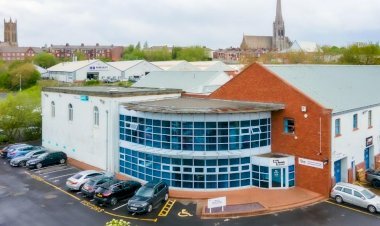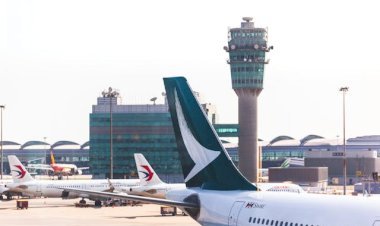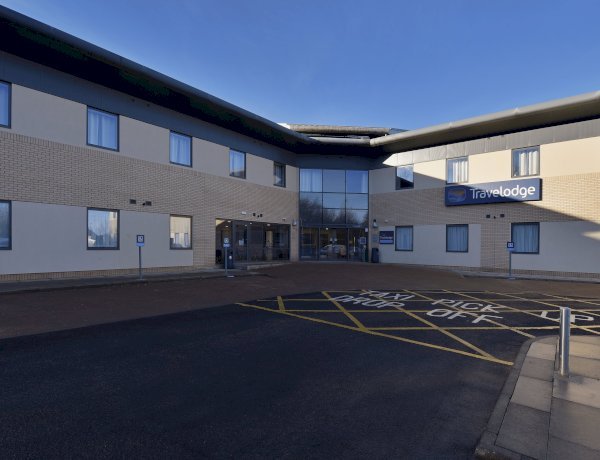The UK Buyer’s Complete Guide to Purchasing Property in Portugal Post-Brexit
Purchasing Property in Portugal made easy for UK buyers. Learn post-Brexit rules, costs, visas, taxes, and the full step-by-step buying process.

Over 46,000 UK citizens now live in Portugal permanently, and British buyers remain among the top three foreign nationalities purchasing Portuguese real estate. In 2024, UK purchasers represented 8% of all foreign property transactions, spending an average of €320,000 per property.
The sunshine, affordability, and quality of life that made Portugal attractive before 2020 remain unchanged. What did change: visa requirements for extended stays and residence permit processes. Property ownership rights? Those stayed exactly the same.
This guide addresses every UK buyer question about Portuguese property post-Brexit — from legal rights to step-by-step processes, costs, mortgages, and tax implications.
Can UK Citizens Still Buy Property in Portugal After Brexit?

Image source: Pinterest.com
Yes. Unequivocally, completely, yes.
What Brexit changed
-
Free movement (UK citizens need visas for stays exceeding 90 days in 180 days)
-
Automatic EU residence rights (now require formal residence permit applications)
-
Travel insurance requirements (EHIC cards no longer valid)
What Brexit didn’t change
-
Property ownership rights (foreign nationals could always buy Portuguese property)
-
Rental rights (short-term or long-term letting permitted)
-
Inheritance rights (full legal protections)
-
Resale rights (no restrictions on selling to any nationality)
-
Mortgage access (Portuguese banks still lend to UK buyers)
The reality: Portugal never restricted property ownership to EU citizens. Brazilians, Americans, Chinese, South Africans, and dozens of other nationalities have purchased Portuguese property for decades. UK buyers simply joined the category of non-EU foreign purchasers after Brexit.
Current UK buyer profile (2024 data)
-
62% purchasing for lifestyle, retirement, or holiday homes
-
38% buying as investment properties for rental income
-
Average purchase price: €320,000 overall (Algarve: €380,000 | Lisbon: €420,000 | Porto: €280,000)
-
Growing trend: UK buyers increasingly favor Portugal over Spain (270 vs. 240 days annual sunshine, plus tax advantages)
The Step-by-Step Purchase Process

Image source: Pinterest.com
Phase 1: Prep Work (1–2 weeks)
Obtain Portuguese Tax Number (NIF)
You cannot purchase property without a NIF — Portugal’s tax identification number. This comes before house hunting, not during.
How to get it
-
Portuguese Embassy/Consulate in London or Manchester: £50–70, processing 1–2 weeks
-
Online specialist services (legal): £150–200, processing 48–72 hours
-
In-person in Portugal: Free at local tax office (Finanças) with proof of address
What you’ll need: valid passport, proof of UK address, completed application form.
Important: If applying remotely (consulate or online), you’ll need a fiscal representative in Portugal — a legal resident who receives official tax correspondence on your behalf. Specialist services such as GetNIF Portugal provide this.
Open Portuguese Bank Account
Required for:
-
Utility payments (water, electricity, internet)
-
Annual property tax (IMI) direct debits
-
Condominium fees (if applicable)
-
Mortgage payments (if applicable)
Options
-
Santander or Millennium BCP with UK offices: book UK appointment, open Portuguese account
-
Portuguese banks: some offer remote account opening via video call and posted documents
-
In-person in Portugal: simplest during property-viewing trips
Documents needed: passport, proof of UK address, NIF, initial deposit (typically €100–500)
Hire Portuguese Solicitor (Advogado)
Critical: never use the seller’s solicitor. Always hire independent legal representation.
Portuguese property law differs substantially from English law. Your solicitor performs due diligence protecting you from:
-
Properties with undisclosed debts (mortgages, tax arrears, condominium fees)
-
Illegal constructions or building violations
-
Disputed ownership or inheritance claims
-
Planning restrictions affecting future use
Cost: 0.5–1% of purchase price (€1,500–4,000 typical)
Services include
-
Title deed verification (Caderneta Predial Urbana)
-
Land registry searches
-
Habitation licence confirmation (Licença de Utilização)
-
Contract drafting and review
-
Attending final deed signing
-
Post-completion registration
Finding solicitors: Ordem dos Advogados (Portuguese Law Society) lists English-speaking property lawyers. Alternatively, Portugal Buyers Agent maintains vetted solicitor networks supporting UK clients through purchase processes.
Phase 2: Property Search & Offer (2–8 weeks)
Where to search
-
Idealista: Portugal’s equivalent of Rightmove — largest property portal
-
Portuguese buyer’s agent services: these firms know the local market well and can simplify and save you time and money in the buying process
-
Casa Sapo: second-largest Portuguese property site
-
UK-based agents: some UK agencies specialise in Portuguese property
-
Direct with Portuguese agents: email agencies in target areas
Viewing trips: budget 5–10 days for concentrated viewings. Portuguese estate agents typically accommodate tight schedules if you communicate dates in advance.
Making an offer
Negotiation is expected and culturally normal. Don’t offer asking price immediately.
-
Properties on market 90+ days: offer 10–15% below asking
-
Properties on market 30–90 days: offer 5–10% below asking
-
New listings in hot markets: offer 0–5% below asking
The Promissory Contract (CPCV — Contrato de Promessa de Compra e Venda)
Once your offer is accepted, both parties sign the CPCV — a preliminary purchase contract that becomes legally binding.
Deposit at CPCV: 10–30% of purchase price (20% most common)
-
Paid directly to seller or held by solicitor
-
If you withdraw: you lose the deposit
-
If seller withdraws: they pay you double the deposit
Timeline: CPCV to final deed typically 30–90 days (allows time for mortgage approval, final due diligence).
What the CPCV contains
-
Final agreed purchase price
-
Property description and identification
-
Payment schedule and completion date
-
Conditions (mortgage approval, satisfactory survey, etc.)
-
Penalty clauses for withdrawal
Your solicitor reviews and negotiates CPCV terms before you sign anything.
Phase 3: Mortgage (if needed) — runs parallel to Phase 2
Can UK buyers get Portuguese mortgages? Yes.
Portuguese mortgage terms for UK buyers
-
Loan-to-value: 70–80% for Portuguese residents, 60–70% for non-residents
-
Interest rates (2025): 4.5–6.5% variable (Euribor-linked), 5–7% fixed
-
Repayment periods: up to 30 years (age restrictions apply — maximum age at loan end typically 75)
-
Income requirements: generally 30–35% maximum debt-to-income ratio
Portuguese banks vs UK remortgage
Most UK buyers choose Portuguese mortgages because:
-
Lower interest rates (EU banking rates vs UK rates)
-
Property insurance included in mortgage package
-
No cross-border legal complications
UK remortgage works if:
-
You have substantial UK property equity
-
You prefer dealing with a UK-based lender
-
Your UK mortgage rate is exceptional
Documents required for Portuguese mortgage
-
Last 6 months UK payslips (officially translated)
-
6–12 months bank statements
-
Last 2 years UK tax returns (SA302 if self-employed)
-
Employment contract
-
UK credit report
-
Passport and NIF
-
Property valuation (arranged by Portuguese bank)
Processing time: 4–8 weeks from complete application to mortgage approval.
Portuguese banks lending to UK buyers
-
Santander Portugal
-
Millennium BCP
-
Novo Banco
-
Caixa Geral de Depósitos
Mortgage broker recommendation: using specialist mortgage brokers experienced with UK buyers significantly increases approval rates and secures better terms. Costs typically €500–1,500 but save thousands in rate differentials.
Phase 4: Completion (1–2 weeks after mortgage approval)
The Final Deed (Escritura)
Signing takes place at Portuguese notary office (Cartório). All parties attend — buyer, seller, and legal representatives. If you cannot attend personally, grant power of attorney to your solicitor to represent you.
What happens
-
Notary reads deed aloud in Portuguese (translation provided if needed)
-
All parties sign deed
-
Remaining purchase funds transfer (typically via bank transfer days before, confirmed at signing)
-
You receive keys
-
Property officially transfers to your name
Costs paid at completion
-
Remaining purchase price
-
Stamp duty (IMT — see costs section below)
-
Notary fees
-
Land registry fees
-
Solicitor’s final fees
After completion
-
Register property at local Finanças office (your solicitor typically handles)
-
Set up utilities in your name
-
Arrange property insurance
-
Set up IMI (property tax) direct debit
If staying longer than 90 days: apply for the appropriate residence permit within 90 days of arrival.
Costs Breakdown (€300,000 purchase example)

Image source: Pinterest.com
Annual ongoing costs

Image source: Pinterest.com
-
IMI (property tax): €400–800 annually (0.3–0.8% of fiscal value, which is typically 60–80% of market value)
-
Condominium fees (apartments): €300–1,500 annually depending on building/amenities
-
Property insurance: €250–450 annually
-
Utilities (if holiday home): €800–1,200 annually for basic coverage
TOTAL ANNUAL: €1,750–4,000
Comparison to UK
-
Portuguese IMT (stamp duty) comparable to UK rates
-
Portuguese property tax (IMI) significantly cheaper than UK council tax (average UK: £1,800/year vs Portugal: €400–800/year)
-
Insurance costs similar
-
Total ongoing costs 30–50% lower than comparable UK property
Tax Implications for UK Buyers

Image source: Pinterest.com
Capital Gains Tax (CGT)
If you’re UK resident:
UK taxes worldwide gains, but UK-Portugal tax treaty prevents double taxation. Pay CGT where you’re tax resident (UK). Standard UK CGT rates apply (18% basic rate, 28% higher rate for property).
If you become Portuguese resident:
Portugal taxes capital gains at 28% flat rate for non-residents. Portuguese residents: 50% of gain added to taxable income, taxed at income tax rates (14.5–48%). Primary residence exemption: if property was your main home for 24+ months before sale, completely CGT exempt.
Rental Income Tax
If renting property out: income taxed in Portugal (where property is located). Non-residents: 28% flat rate on gross rental income. Portuguese residents: rental income taxed at income tax rates (14.5–48% sliding scale).
UK reporting: must declare Portuguese rental income on UK tax return, but credit is given for Portuguese tax already paid (double taxation treaty prevents paying twice).
Inheritance Tax
Portugal: abolished inheritance tax in 2004. Spouses and direct descendants (children) pay zero inheritance tax. 10% stamp duty applies to some other relatives.
UK: if you remain UK-domiciled, Portuguese property forms part of worldwide estate, potentially subject to UK inheritance tax (40% above £325,000 threshold).
Estate planning: consult a cross-border tax specialist. Strategies exist to minimise inheritance tax through trusts, wills, and domicile planning.
Currency and Exchange Rates
Current rates (2025): £1 = €1.15–1.18 (fluctuates)
Managing currency risk
-
Forward contracts: lock in exchange rate for future purchase (useful if you’ve agreed price but completion is months away)
-
Limit orders: set target exchange rate; transfer executes automatically when rate reached
-
Regular transfers: if paying mortgage or buying over time, regular scheduled transfers average out rate fluctuations
Currency transfer services
-
Wise (formerly TransferWise): 0.35–0.45% fees, mid-market exchange rates
-
CurrencyFair: 0.3–0.5% fees, peer-to-peer matching
-
Moneycorp: 0.5–1% fees, personal account managers
Avoid: bank wire transfers — typically charge 3–5% in hidden exchange rate markups plus flat fees.
Residence Permits for UK Buyers Planning to Live in Portugal

Image source: Pinterest.com
If you intend to spend more than 90 days per year in Portugal, you need a residence permit.
D7 Passive Income Visa (most popular for retirees)
-
Requirement: €820/month stable passive income (pension, dividends, rental income)
-
For couples: €1,230/month
-
Processing: 4–6 months
-
Residence requirement: spend majority of year in Portugal
-
Pathway: permanent residence after 5 years, citizenship after 6 years
Digital Nomad Visa (for remote workers)
-
Requirement: €3,280/month remote work income
-
Duration: 1 year renewable for up to 4 years
-
Work for non-Portuguese employers
-
Processing: 2–4 months
Golden Visa (investment route)
-
Requirement: €500,000 investment (funds or commercial property — residential property no longer qualifies)
-
Minimum presence: just 7 days/year
-
Benefit: citizenship eligible after 5 years with minimal presence
-
Processing: 8–14 months
D2 Entrepreneur Visa
For business owners establishing Portuguese operations. Requirement: business plan, minimum capital investment (varies). Processing: 3–6 months.
Final Advice for UK Buyers

Image source: Pinterest.com
Portugal remains one of Europe’s most welcoming countries for foreign property buyers. The combination of:
-
Affordable property (vs UK and Western Europe)
-
300 days annual sunshine
-
Low property taxes (IMI far below UK council tax)
-
Excellent quality of life
-
Political and economic stability
-
Large established British expat community (support networks, English services)
-
Direct flights from 15+ UK airports (2.5–3 hours)
-
English widely spoken in coastal/urban areas
makes it among the most attractive European lifestyle and investment destinations for Britons.
Brexit added administrative layers — residence permits, visa applications — but didn’t fundamentally change property ownership rights or the appeal of Portuguese living.
The process is logical, costs are transparent, and legal protections are robust. Thousands of UK buyers successfully navigate Portuguese property purchases annually. With proper preparation — NIF acquisition, independent legal representation, realistic budgeting, and understanding of residence requirements — the process is straightforward.
The Portuguese dream didn’t end with Brexit. It just requires a bit more paperwork.
Conclusion
Brexit may have changed how UK citizens stay in Portugal, but it didn’t change their right to buy property or enjoy everything Portugal offers. The country remains one of Europe’s most attractive destinations for British lifestyle seekers, retirees, and investors thanks to its affordability, safety, sunshine, stable economy, and low taxes.
The buying process is straightforward with the right preparation: securing a NIF, opening a Portuguese bank account, hiring an independent solicitor, and understanding the visa/residence requirements if you plan to stay more than 90 days. Legal protections are strong, due diligence is clear, and thousands of UK buyers successfully navigate the process every year.
The bottom line: the British dream of owning a home in Portugal is absolutely alive. Brexit didn’t close the door — it simply added a few extra forms to fill in.
Common UK Buyer Questions
1. Will Brexit damage my Portuguese property value?
No evidence suggests Brexit impacts Portuguese property values. Demand from other EU nations, Americans, and Brazilians continues growing. British buyers remain active — Brexit hasn’t reduced UK purchase volumes.
2. Can I use NHS if I retire to Portugal?
No. Once you become Portuguese resident, you leave the NHS system. Portugal offers:
-
Public healthcare (SNS): available to residents, excellent quality, very affordable
-
Private health insurance: €50–150/month for comprehensive coverage (far cheaper than UK private insurance)
3. Do I need to speak Portuguese?
Not for property purchase — solicitors and many estate agents speak English. For daily life in Portugal, learning Portuguese significantly enhances experience, but large English-speaking expat communities exist in Algarve, Lisbon, and parts of Porto.
4. What about healthcare emergencies before I get residence?
EHIC cards no longer cover UK citizens in Portugal. Purchase comprehensive travel/medical insurance covering the entire period you’re in Portugal until you secure residence and healthcare access.
5. Can I rent my property short-term (Airbnb)?
Yes, but requires AL (Alojamento Local) licence from local câmara municipal (city hall). Some municipalities (parts of Lisbon, Porto) have frozen new AL licences due to housing pressure. Check local regulations before assuming short-term rental income.
6. Is Portuguese property safe from government seizure or restrictions?
Portugal has strong property rights protections. Foreign owners have identical legal rights to Portuguese citizens. No indications of government moves to restrict foreign ownership or seize property.




























